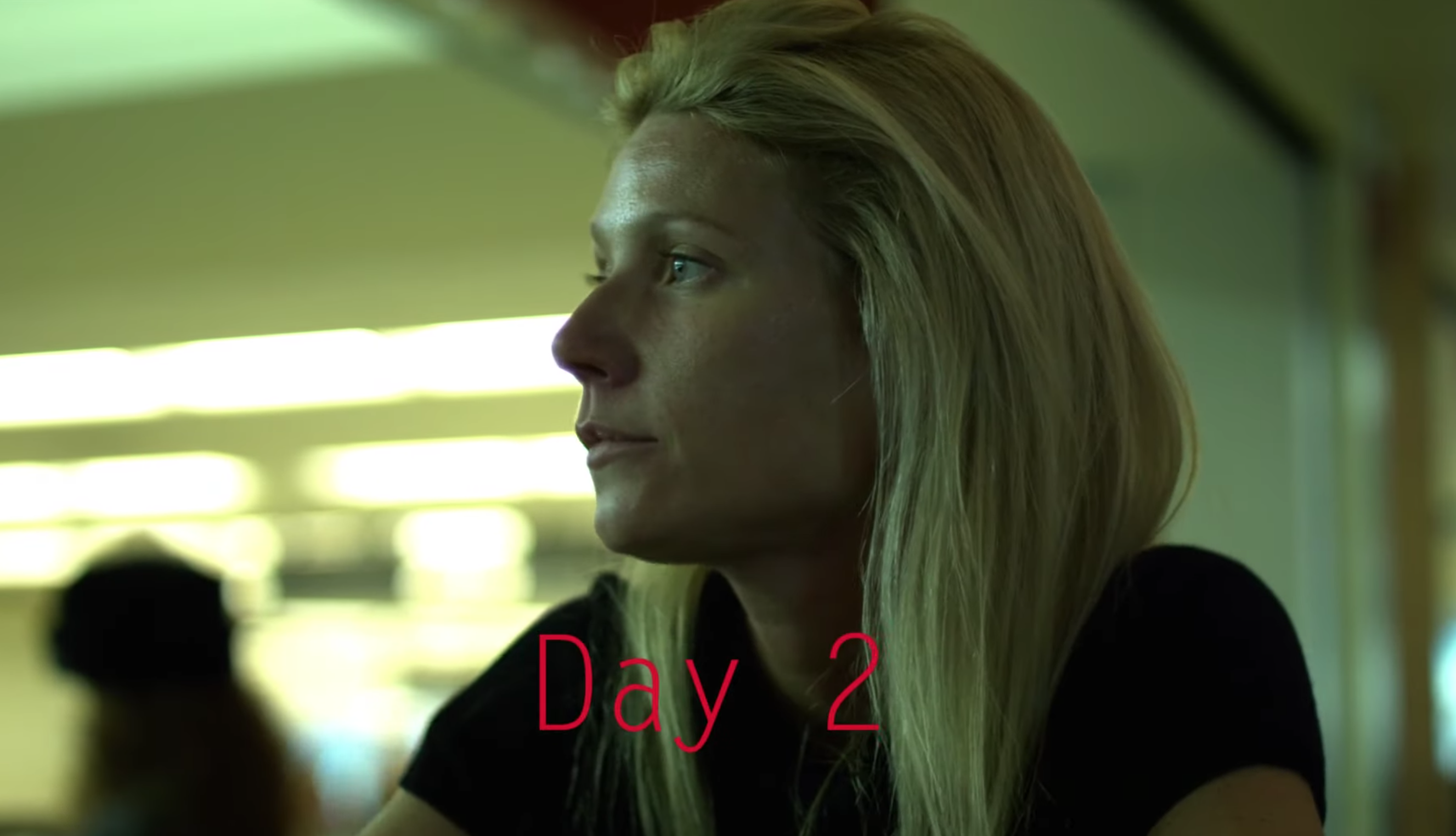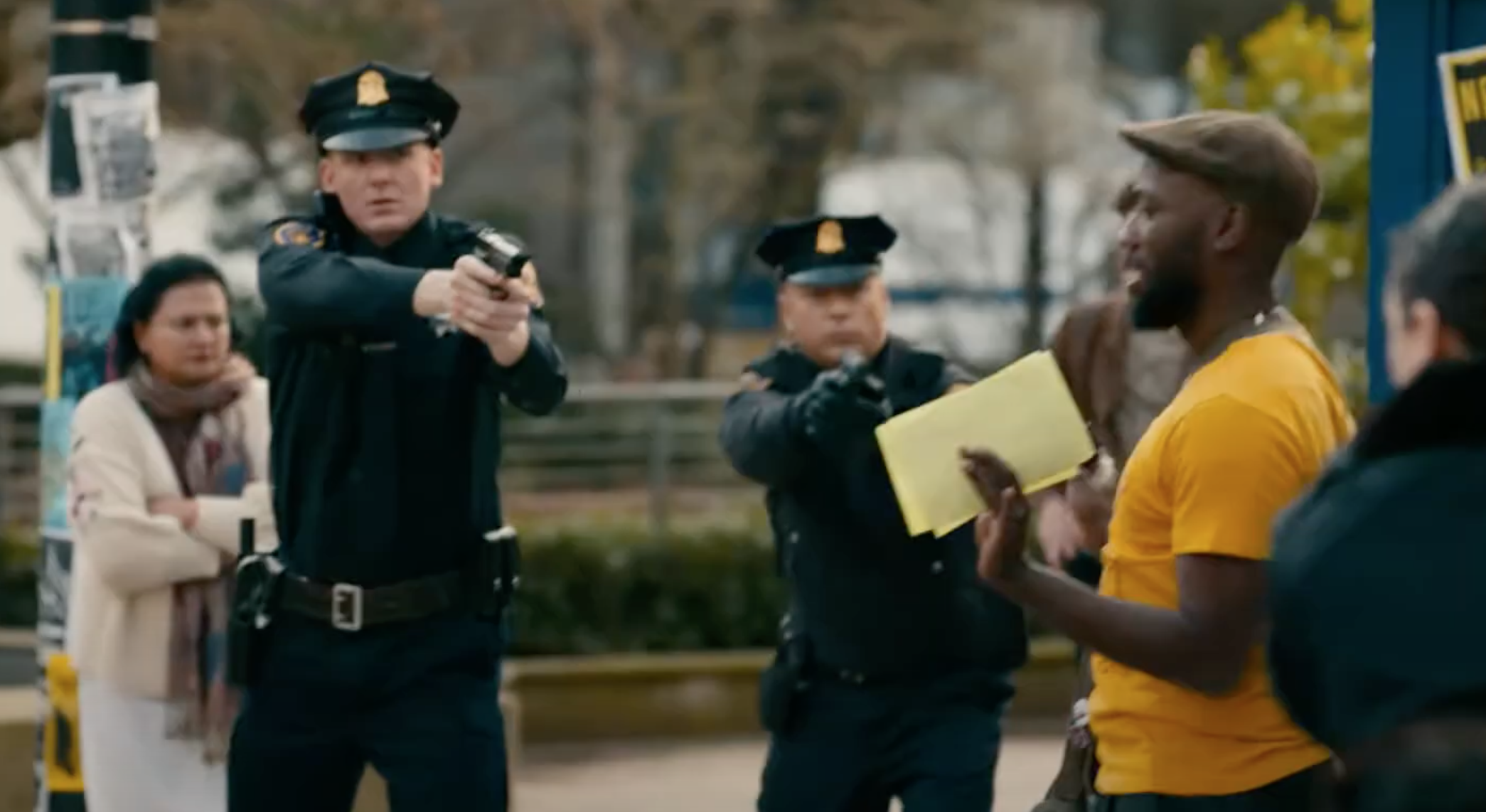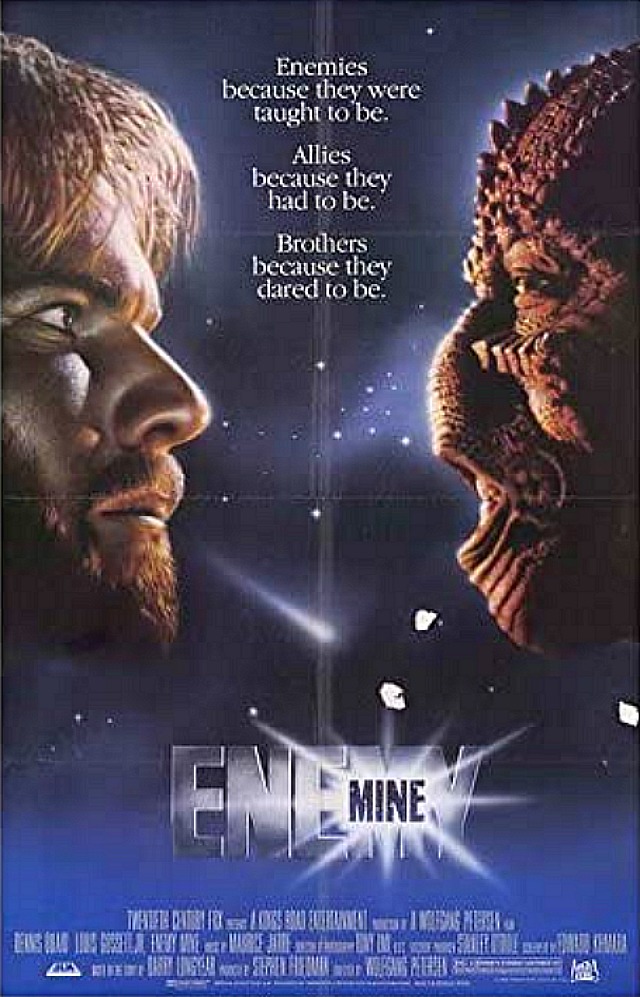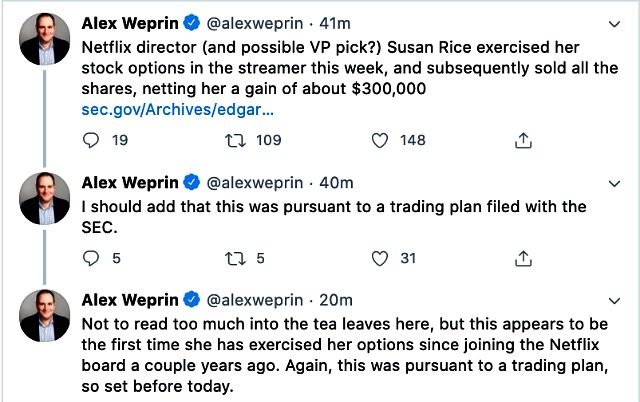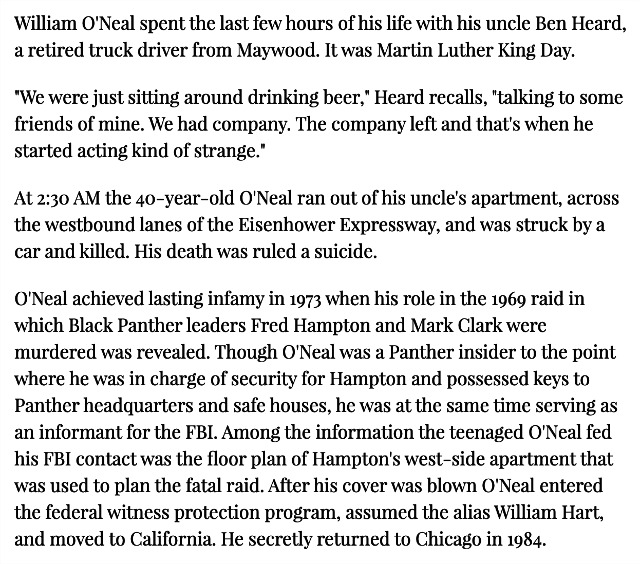Tatiana had never seen Contagion so we watched it last night — my fourth or fifth time, but God, such a brilliant film, and so far ahead of the curve it wasn’t funny. It did fairly well financially, but it failed to catch on as a Best Picture contender. It should have. It didn’t predict the future — it knew it cold. This message appears at the very end of the credits:

“Contagion Reboot,” posted on 11.19.11: Last night Warner Bros. publicity made a spirited, gung-ho attempt to re-launch Steven Soderbergh‘s Contagion among award-season cognoscenti and to put it into “the conversation,” so to speak. They invited journos like myself to a pleasant, talent-populated soiree (Soderbergh, Benicio del Toro, Garry Shandling, Contagion producers Michael Shamberg and Stacey Sher, screenwriter Scott Burns) inside the Clarity lobby-rotunda, and followed this with a screening of the film.
The pitch was basically “this is an undeniably gripping, highly intelligent, superbly-made socio-political-scientific thriller“” — no argument from me — “so why isn’t it being mentioned a bit more in terms of awards chatter, best-of-the-year lists and so on?”
The best response I can think of is that Contagion is going on a best-of-2011 list…mine, I mean. My second response is that with Contagion having made about $75 million domestic, what’s the beef? And my third response is that it’s about a subject — social devastation caused by a pathogen — that unsettles people on a very deep level, perhaps more than they know going in, and so I’m guessing they’d rather just leave it at that and not revisit the Contagion reality any more, thanks.
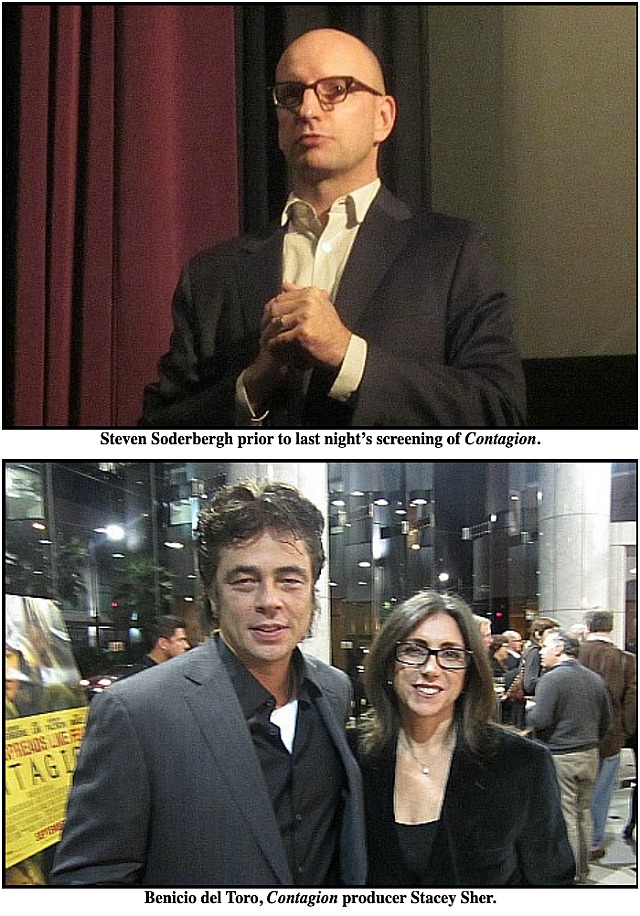
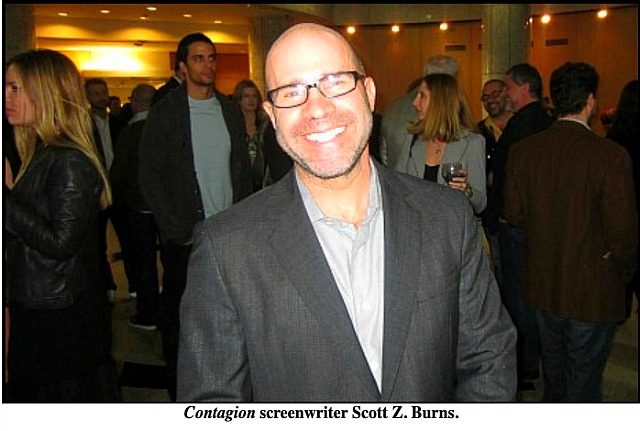
I mean, I was scratching my face all through last night’s screening, and half-wondering if there was something wrong with me because of this, absurd as that sounds. I don’t mind seeing Gwynneth Paltrow die horribly, but I don’t want to go the same way…please.
On top of which Warner Bros. decided to open Contagion in early September. This conveyed to all that (a) they were going for the money (and a $75 million haul is nothing to sneeze at) and (b) the studio felt it was good enough to release in a quality-friendly portion of the calendar but that it wasn’t necessarily an awards contender or they would have opened it in late October or November or December.
There are three other factors: (1) Contagion is an intellectual-technical chiller (as opposed to an emotional drama of some kind) and is therefore regarded as a kind of “genre” film, and that kind of distinction rarely leads to awards chatter; (2) To some extent Contagion is, let’s face it, emotionally dry or reserved, like many of Soderbergh’s films (a quality I’ve always rather enjoyed and in fact praised); and (3) It doesn’t contain one of those thematic echoes or undercurrents that Oscar-season films tend to have, nor does it deliver some basic recognizable truth.
Yes, it says that “it’s entirely possible that millions of us might suddenly die some day due to a runaway virus” but that’s not a basic recognizable truth. If it happens, that would be an anecdotal fact.
Here’s my early September review. I love Contagion. It’s going on my best-of-the-year list, no question. And I especially loved the performances by Jennifer Ehle (her bedside scene with her ailing dad is one of the few genuinely affecting emotional moments), Kate Winslet, Jude Law, Matt Damon, Elliott Gould and Laurence Fisburne. And I can’t wait for the Bluray, and I wish it would be longer when it comes out in that format.

